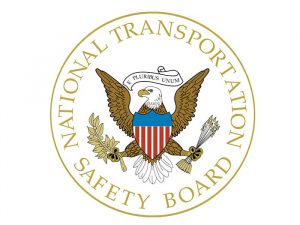
California legislator has a fix for the flaws in problematic CARB harbor craft regulations
Written by Nick Blenkey
California legislator Dr. Jasmeet Bains has a prescription to fix the flaws in the CARB harbor craft regulations.
California state assemblymember Dr. Jasmeet Bains (D-Delano) is moving to rectify problems in California Air Resources Board (CARB) harbor craft regulations slammed as “unworkable” and “deeply flawed” by the American Waterways Operators (AWO), even before they went into force. AWO noted that, among other things, the CARB emission regulation mandates engine technology that is not available and is not certified as safe by the U.S. Coast Guard.
Now Dr. Bains has introduced Assembly Bill 1122, which aims to supersede the CARB harbor craft regulations by ensuring they cannot go into effect without being certified they are safe for mariners and are undisruptive to supply chain operations at California’s ports.
“California’s ports are responsible for 40% of all the imports and exports of the United States,” said Dr. Bains. “Importantly, they are critical to the operation of the San Joaquin Valley’s agricultural industries. Disruptions at our ports create supply chain ripple effects throughout the state and country, driving up inflation and costs for things like gasoline.
“The mariners, pilots, and other crewmembers who operate port and harbor vessels are essential to making the supply chain run smoothly while also protecting the sensitive environment of our coastal communities.
“The California Air Resources Board knowingly sacrificed the safety of these brave men and women, and ignored the advice of the U.S. Coast Guard, when they adopted recent amendments to regulations governing tugboats and other harbor vessels. The amendments were adopted despite objections from the U.S/ Coast Guard that they could jeopardize the safety of crewmembers and the environment alike. In fact, CARB hid its communication with the US Coast Guard from the public and refused to modify its amendments to address their concerns.
“These regulations would compel vessel owners to retrofit their ships with unproven technologies that could cause engines to heat up to 1,500 degrees Fahrenheit and catch fire – endangering the safety of the crew and anyone around them. They could cause tugboats to lose control of oil tankers resulting in oil spills that will kill countless marine animals and irreparably harm sensitive habitats. These regulations are simply too dangerous to go forward unchanged.
“I have introduced Assembly Bill 1122 to respond to concerns raised by California workers, businesses, and the U.S. Coast Guard that the current regulations imposed by CARB would mandate untested, unapproved, and potentially dangerous technologies. This bill will ensure that any piece of equipment that CARB mandates for maritime operators must be approved by experts so that we can avoid any potential dangers to mariner safety and the marine environment. This is standard practice for the industry globally and should be the standard practice in California.
“I am not willing to stand by and watch someone die because CARB didn’t do their job. They have known about these concerns since at least 2021 and have done nothing to address them. The Legislature must step in to ensure that safety comes before bureaucratic apathy.”
SELECT COMMITTEE HEARING
At a select committee hearing on the legislation held November 2, AWO’s director of state advocacy, Kyle Burleson, said: “Mariners need to have safe and vetted equipment on their vessels in order to do their jobs safely and get home when it’s done. In fact, the USCG voiced these issues, among many, to CARB directly. That’s why we’ve worked with Assemblymember Bains to introduce AB 1122 which doesn’t tell CARB what it can and can’t do, but simply says that if they’re going to mandate equipment on a vessel, it has to be verified by a vessel class society for safe use before it can be installed.”
Giving a mariner’s perspective, MM&P regional representative Captain Sly Hunter told the committee: “On a boat, the engines are the gas, pedal and brakes. The loss of engine power is a catastrophic risk to vessel safety and more importantly mariner safety. The new Commercial Harbor Craft rule does not do enough to address mariner safety and could in fact endanger the men and women on the vessels.”




